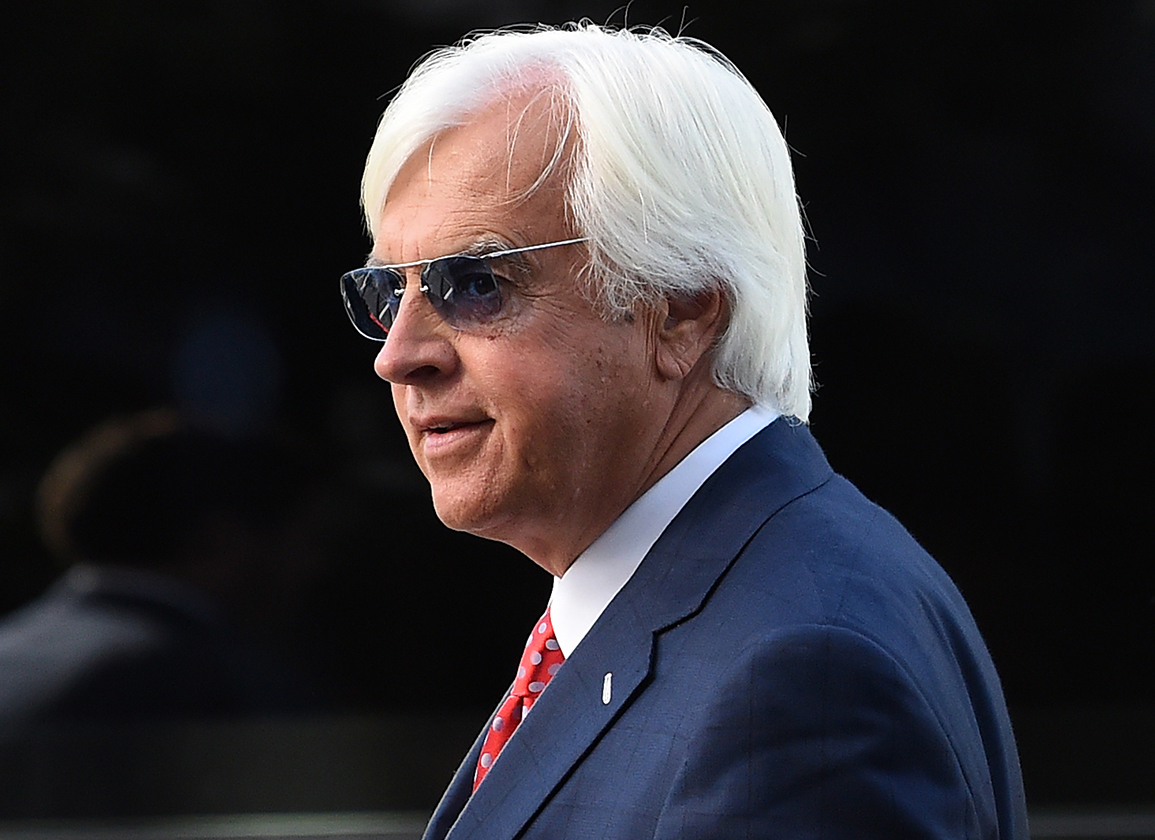By T. D. Thornton
The New York Racing Association (NYRA) fired back in court Monday against Bob Baffert's attempt to collect $162,086 in legal fees and expenses from NYRA that have resulted from the Hall of Fame trainer's lawsuit against NYRA.
Calling his request “premature” while claiming that the $450 to $975 hourly fees charged by his lawyers are “disproportionately high,” NYRA also alleged that Baffert is attempting to twist a legal provision “intended to incentivize attorneys to represent individual civil rights plaintiffs that might otherwise be unrepresented” to his own financial benefit when it purportedly shouldn't apply.
“Plaintiff, the most prominent trainer in Thoroughbred racing, can afford to pay his lawyers and would have brought this action regardless of whether he could obtain an award of attorneys' fees,” NYRA wrote in the Sept. 27 filing in United States District Court (Eastern District of New York).
“An award of attorneys' fees would be particularly unjust, given the vital interests NYRA seeks to promote, and NYRA's status as a not-for-profit corporation,” the filing continued.
Back on Aug. 25, Baffert had asked the court to order NYRA to pay him the money based on Baffert's claim that he is the “prevailing party” in the case even though the trainer has only obtained a preliminary injunction to race at Belmont Park, Saratoga Race Course and Aqueduct Racetrack.
The overall lawsuit stems from NYRA's banishment of the seven-time GI Kentucky Derby-winning trainer back on May 17, which came 16 days after the Baffert-trained Medina Spirit (Protonico) tested positive for betamethasone while winning the Derby.
That case has still not resulted in any Kentucky ruling against Baffert. But in the 12 months prior to Medina Spirit's positive, four other Baffert trainees also tested positive for medication overages, two of them in Grade I stakes.
Baffert responded to NYRA's ruling-off by filing a June 14 civil complaint alleging that the NYRA ban violated his constitutional right to due process.
On July 14, the eve of the Saratoga season, the court granted Baffert a preliminary injunction that allowed him to race at New York's premier tracks until the lawsuit was adjudicated in full.
Six weeks later, Baffert petitioned the court to get NYRA to pay for the legal costs he had incurred to that point.
Baffert's attorneys wrote in that Aug. 25 filing that “Under any view of the case, Baffert has fully prevailed on all of his due process claims asserted under Section 1983…. Baffert has essentially achieved his main objective in this litigation [and] the Court's preliminary injunction is to Baffert the functional equivalent of a final judgment on the merits with respect to his claims and relief sought.”
Baffert had attached to his legal filing detailed invoices to substantiate his requests for payment. Those documents revealed the hourly amounts that Baffert's three main attorneys have charged him.
The Kentucky-based W. Craig Robertson, the lead counsel in the case, wrote in a declaration that he charged Baffert $475 hourly for his work.
The New York-based Charles Michael wrote in a separate declaration that “my $975 hourly rate is within the reasonable rate customarily charged by attorneys with comparable experience.”
The Oklahoma-based Clark Brewster wrote that he billed $450 hourly, noting that “the rate charged to Baffert is reasonable with respect to equine matters and the rates fall within the standard range for commercial and equine litigators.”
But NYRA's Sept. 27 filing took umbrage with those rates and how they were calculated.
“Plaintiff's requested fees and costs associated with the work of lawyers' and paralegals' fees from law firms in three separate states is, under the particular circumstances of this case, disproportionately high and in excess of what courts in this District have deemed reasonable,” NYRA stated. “Accordingly, even if a fee award is granted, which it should not be, this Court should exercise its discretion to substantially reduce any award.”
The NYRA filing continued: “A close review of the billing records attached to the declarations in support of Plaintiff's motion reveals multiple instances in which more than one attorney bills for a task, or series of tasks, that reasonably could have been handled by a single attorney, or tasks that a more junior lawyer or paralegal should perform.”
Beyond the issues with invoicing, NYRA argued that it's not appropriate to award any costs right now because the overall case is ongoing.
“As a threshold matter, Plaintiff's motion is premature because, while this Court granted preliminary relief in the July 14 Order, there has been no final determination of this matter,” the filing stated. “Numerous courts have rejected requests for attorneys' fees predicated on preliminary injunction orders at this early stage.”
Not a subscriber? Click here to sign up for the daily PDF or alerts.






